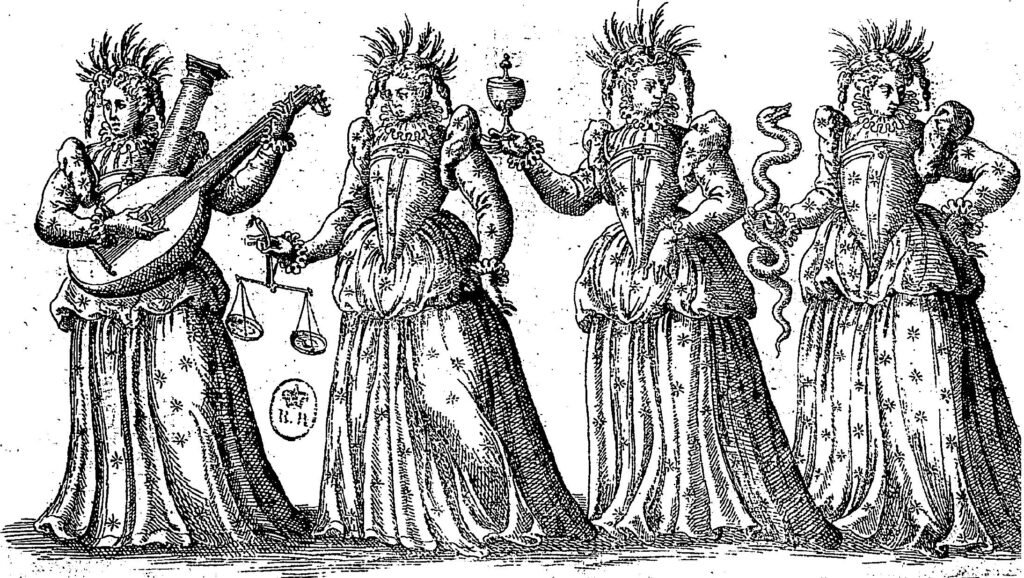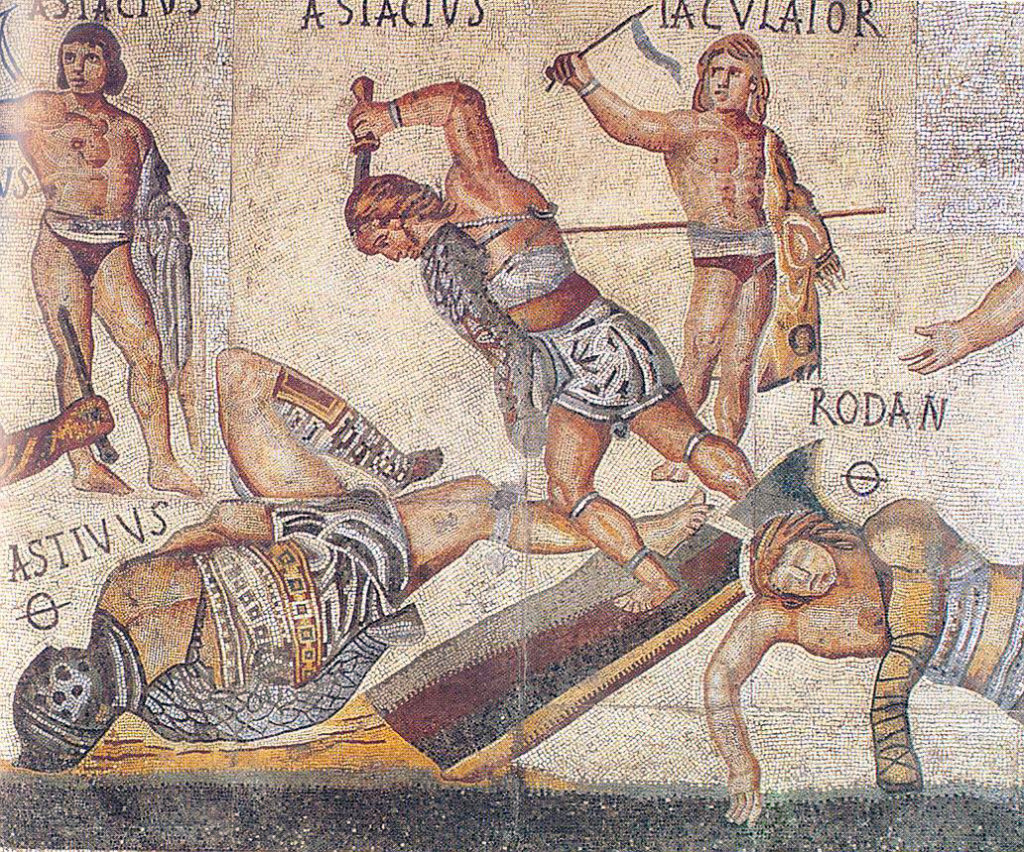The four cardinal virtues are wisdom, courage, moderation, and justice.
The word ‘cardinal’ comes from the Latin word cardo for ‘hinge’ or the word cardinalis meaning ‘essential’. It is often said that all human virtues hinge on these four.

The Four Cardinal Virtues Throughout History
The four cardinal virtues were originally conceptualized by Plato, expanded upon by Aristotle, adopted by the Stoics, and eventually became such a well-entrenched part of belief and academia that they were embedded into the church doctrine.
Plato
The philosopher Plato was born in Athens in the fifth century BC. He believed in the immortality of the soul and the theory of reincarnation. He wrote extensively about ethics, particularly about moral and social obligations within society.
Plato was a student of Socrates, and many of his writings are Socratic dialogues that are written in a style of questions and answers to preserve the wisdom of the founder of Western philosophy.
Socrates believed that all virtue is a form of knowledge. The famous saying “no one errs willingly” stems from Socrates’ belief that people who act wrongly do so because they don’t know any better and are therefore unable to do better.
In his work the Republic, Plato wrote of the virtues of state and soul upon which everything is built. They were wisdom (sophia), courage (andreia), moderation (sôphrosunê), and justice (dikaiosýnē).
The famous philosopher Aristotle was one of many students to study the Academy, a school for philosophy that Plato founded in Athens. He studied there for twenty years.
Aristotle
Aristotle wrote extensively about philosophy, politics, psychology, physics, and other subjects. He was the first to put a term to the field of ethics, or the written attempts of philosophers to answer the questions of how humans should live to the best of their ability.
A man of good character, he believed, does “the right thing at the right time in the right manner”. By conducting themselves virtuously, humans can find happiness and flourish. The purpose of ethics, he stressed, was to act virtuously. It was a practical discipline, not just theoretical.
In his work Nicomachean Ethics, Aristotle further explored the four cardinal virtues set forth by Plato. He also added many of his own: “The forms of Virtue are justice, courage, temperance, magnificence, magnanimity, liberality, gentleness, prudence, wisdom.”
His work influenced great thinkers for centuries to come.
Stoicism
Next came the Stoics, who believed that living virtuously was key to living well.
Like the Greek philosophers who came before them, the Stoics believed that the four principal virtues were justice, courage, wisdom, and moderation. The Stoics believed that virtue was the sole necessary condition for true happiness.
Wisdom and temperance were foundational tenets of Stoicism; followers wished to be free of their passions (such as fear, anger, or even delight). They regarded these patterns to be disturbing and harmful; only in mastering them could the soul be truly free.
Stoicism had a strong influence on early Christian philosophy.
Christian Tradition
Early Christian philosophers adopted the cardinal virtues of the Greeks and added the three theological virtues of faith, hope, and charity (sometimes written as ‘love’). It was Saint Augustine of Hippo who gave the four virtues the Latin term cardinalis.
The four cardinal virtues, according to the Catholic Church, did not originate with Plato. They are an intrinsic part of human nature, and therefore a part of God’s design.
The Book of Wisdom, also called the Wisdom of Solomon, states that wisdom “teaches temperance, and prudence, and justice, and fortitude, which are such things as men can have nothing more profitable in life.”
Maccabees wrote, “Now the kinds of wisdom are right judgment, justice, courage, and self-control. Right judgment is supreme over all of these since by means of it reason rules over the emotions.”
Both of these texts were written in the first or second century BCE and incorporated into Christian tradition. The New Testament also discusses each of these virtues in detail.
Christian philosophy added three additional virtues. Corinthians states: “And now these three remain: faith, hope, and love. But the greatest of these is love.”
Wisdom
In Plato’s Republic, wisdom is first among the virtues.
In the dialogue, they address wisdom as being almost synonymous with knowledge. But it is not the knowledge of carpentry or agriculture that is needed among leaders of state. Rather, they must have the knowledge of “good counsel”.
Aristotle later explored this concept in greater depth. He wrote that there were many different kinds of wisdom: art, scientific knowledge, practical wisdom, political wisdom, philosophical wisdom, and intuitive reason.
The Stoics divided wisdom into the areas of quick-wittedness, good sense, resourcefulness, discretion, and good calculation.
Christian philosophy later defined wisdom (or prudence) as the ability to consider the potential consequences of our actions and make the right choices. They ranked it as the first cardinal virtue.
Unlike previous philosophers, early Christian philosophers believed that seeking wisdom from trusted counselors to be a core quality of true wisdom.
Justice
Justice was the final concept addressed in the Republic as a necessary virtue of the model state, described in the dialogue as people’s willingness to “do their own work and not meddle with that of another”.
Women in their place in other words, and slaves in theirs, and the ruling class on top. That was Plato’s idea of justice. Still, it’s important to note that in this understanding of justice, it is not a synonym for vengeance, but rather a form of harmony.
Just as justice relates to a man having what is his own and not stealing from his neighbors, reasoned Plato, so does it rest on each man doing the work that belongs to him and not attempting to rise above his station.
Aristotle defined a just man as one who is law-abiding and fair. Justice, he wrote, is virtue “in relation to our neighbor”. In other words, the ability to remain virtuous in our dealings with others.
The Stoics further expounded on this final virtue by dividing it into the categories of equity, honesty, piety, and fair dealing.
Christian philosophers held that justice was the second cardinal virtue, and they associated it with willpower. John A. Hardon’s Modern Catholic Dictionary defines justice as “the constant and permanent determination to give everyone his or her rightful due.”
Courage
In the original Socratic dialogue Republic, Plato wrote that courage is a combination of belief and steadfastness of character. He compared it to colorfast wool; it does not fade with time or wear.
Aristotle wrote that it was possible to have either a deficit or overabundance of courage. The lack of courage makes a man cowardly, but too much can make him rash or foolhardy. In his view, moderation was an essential element of proper courage.
“Courage is noble,” wrote Aristotle. A brave man “chooses or endures things because it is noble to do so”.
He wrote about different forms of courage: a young soldier shows courage in the face of death, while a seasoned soldier shows courage even in the face of his knowledge of what a battle can bring. Passion, he thought, is a form of courage as well. The ability to endure pain is yet another kind of courage.
Stoics philosophers defined courage as cheerfulness, endurance, confidence, and industriousness.
St. Thomas Aquinas ranked courage – or to use his word, fortitude – as the third cardinal virtue. He defined fortitude as well-reasoned steadiness, or the determination to see through those goals which we have pursued in the spirit of wisdom and justice.
Still today, fortitude is viewed as a gift from the Holy Spirit.
Moderation
Moderation, often translated as temperance, was originally expressed by Plato as a disposition towards order. There is, he wrote, a “nature of harmony and symphony” to the concept.
Temperance is rooted in the control of certain desires that may run counter to the fundamental interests of a man or the state. The lowliest members of society, he explained (women and children and servants – thanks, Plato) are subject to “manifold and complex pleasures and desires”.
Only the best and most educated men, he reasoned, have “simple and moderate desires which follow reason, and are under the guidance of mind and true opinion”.
Temperance is “a sort of harmony”, the conviction that those in power have the right to rule and the rest should fall into line. That way, “the meaner desires of the are held down by the virtuous desires and wisdom of the few.”
It was Aristotle who focused on temperance as we would think of it today. He defined it as a moderated approach to pleasure. Adults should not be overly self-indulgent, he wrote. Our desires should not supersede logical thought.
The Stoics subdivided temperance into modesty, seemliness, discipline, and self-control.
Saint Thomas declared temperance to be the fourth and final cardinal virtue. In his view, temperance is the restraint of one’s baser desires and passions. It is the refusal to let our wants override the ruling virtues of wisdom, justice, and courage.
Sources
http://classics.mit.edu/Plato/republic.mb.txt
http://classics.mit.edu/Aristotle/nicomachaen.mb.txt
https://plato.stanford.edu/entries/plato-ethics/
https://iep.utm.edu/stoiceth/
https://www.learnreligions.com/the-cardinal-virtues-542142

